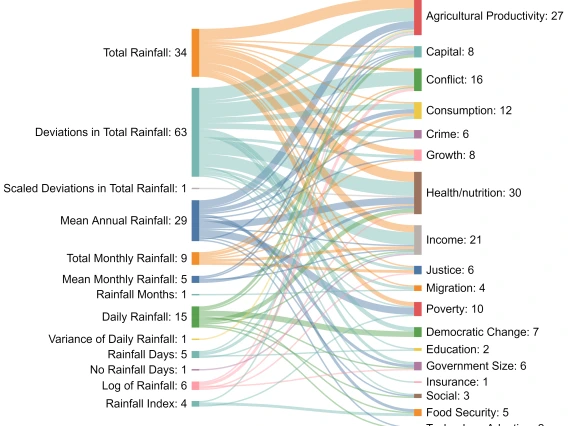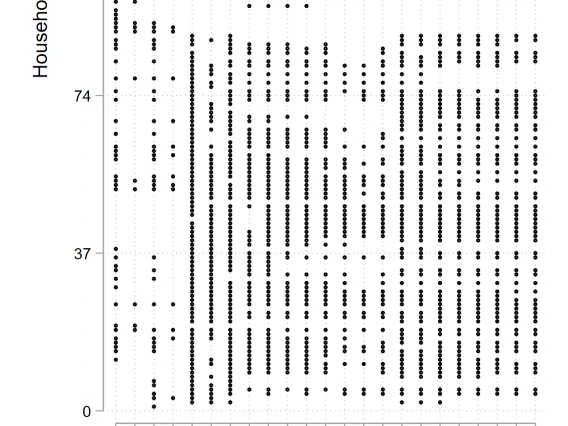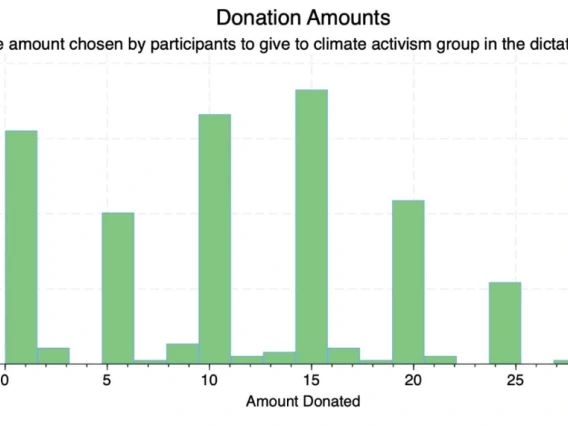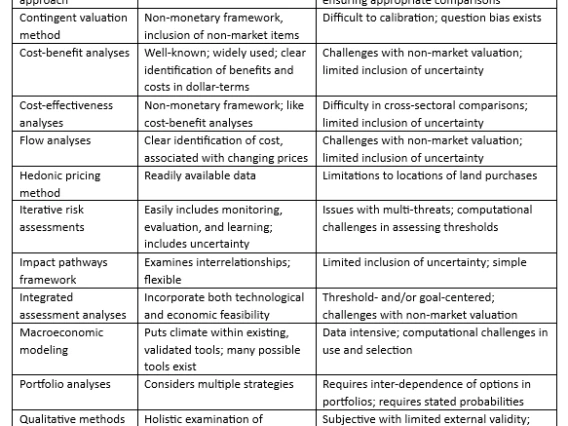
Variable Selection in Economic Applications of Remotely Sensed Weather Data: Evidence from the LSMS-ISA
Chandrakant Agme, Anna Josephson, and Jeffrey D. Michler

Farmer Family Firms and Missing Markets: Evidence from the Philippines, 1970-2016
Emil Kee-Tui, Anna Josephson, and Jeffrey D. Michler

Risk and Rainfall: Specification Sensitivity in Estimating Smallholder Risk Preferences
Reece Branham, Anna Josephson, and Jeffrey D. Michler

Exploring Crop Yield Dynamics Across Sub-Saharan Africa: A Six Country Study
Rodrigo Guerra Su, Anna Josephson, and Jeffrey D. Michler

The Cost of Climate Action: Experimental Evidence on the Impact of Climate Information on Charitable Donations to Climate Activism
Samantha Gonsalves Wetherell and Anna Josephson

The Economics of Climate Adaptation: An Assessment of the Literature
Anna Josephson, Rodrigo Guerra Su, Greg Collins, and Katharine Jacobs

